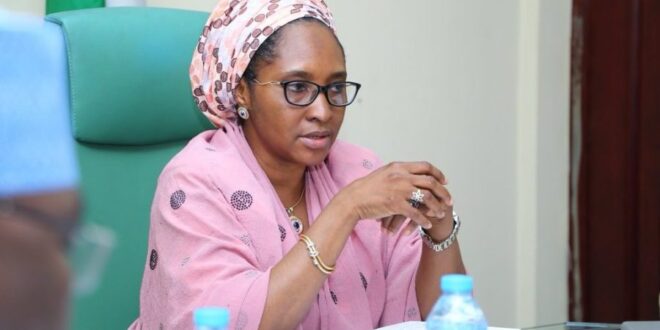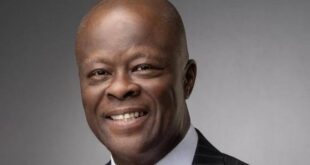Ololade Omosan-Agie
The Minister of Finance, Budget and National Planning, Zainab Ahmed, has said that Nigeria’s debt Service to GDP ratio has hit 73 per cent and admitted that the country is facing a severe revenue problem.
Ahmed made the disclosure at the ‘Public Presentation and Breakdown of the Highlights of the 2022 Appropriation Bill.’
President Muhammadu Buhari on Thursday presented the 2022 budget proposal of N16.39trn before a joint session of the National Assembly.
The budget which is titled, ‘Budget of Economic Growth and Sustainability’ will be the last budget that will be fully implemented by the administration of Buhari.
The Federal Government expects N10.13trn to be the total revenue available to fund the 2022 Federal Budget.
The parameters and fiscal assumptions of the budget are built around an oil benchmark of 57 per barrel, a daily oil production estimate of 1.88 million barrels (inclusive of condensates of 300,000 to 400,000 barrels per day).
The projected exchange rate is N410.15 per US dollar while projected GDP growth rate is 4.2 percent and 13 percent inflation rate.
The deficit for the 2022 budget is N6.26trn as the FG plans to finance the deficit mainly by new borrowings of N5.01trn, N90.73bn from Privatisation proceeds and N1.16trn drawdowns on loans secured for specific development projects.
So far, the Debt Management Office said Nigeria’s debt profile is N35.5trn.
In 2020 due to the Covid-19 pandemic, Nigeria slipped into a second recession under the Buhari government with the first in 2016.
Ahmed said, “Nigeria’s debt service/GDP ratio of 73 per cent as of August 2021 is the highest among African top economies.
“This is proof that what we have is not a classic debt sustainability problem, but a revenue challenge,” she said.
She lamented that the tax rate compliance ratio is higher among the comparable countries.
Ahmed continued, “The most viable solution to our fiscal challenge therefore remains to grow our revenues and plug all leakages.
“Our target over the medium term is to grow our revenues-to-GDP ratio from about 8-9 per cent currently to 15 per cent by 2025.
The finance boss said it is critical to fix Nigeria’s revenue challenges as reducing expenditure is not a viable option.
On the aggressive borrowings, she said the country would have still been in recession without the government’s aggressive borrowing to build infrastructure.
She said, “You borrow when you are compelled to. When you don’t have enough revenue and you aspire to grow, especially grow your infrastructure and also bridge your human capacity gap, it is either you don’t do it or you borrow to do it.
“We have resorted to borrowing to finance our fiscal gaps. However, we believe that the debt levels of the Federal Government are still within sustainable limits.
“Having witnessed two economic recessions we have had to spend our way out of recession, which contributed significantly to the growth in the public debt.
“It is unlikely that our recovery from each of the two recessions would have been as fast without the sustained government expenditure funded partly by debt.”
The minister said although the borrowing is above the provisions of the Fiscal Responsibility Act 2007, Section 41 (1)a of the Act backs its borrowings which are essentially for Capital Expenditure and Human Development.
 The Commerce Africa African Reneissance
The Commerce Africa African Reneissance


